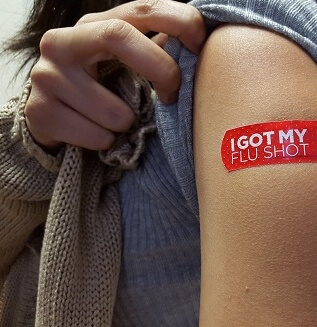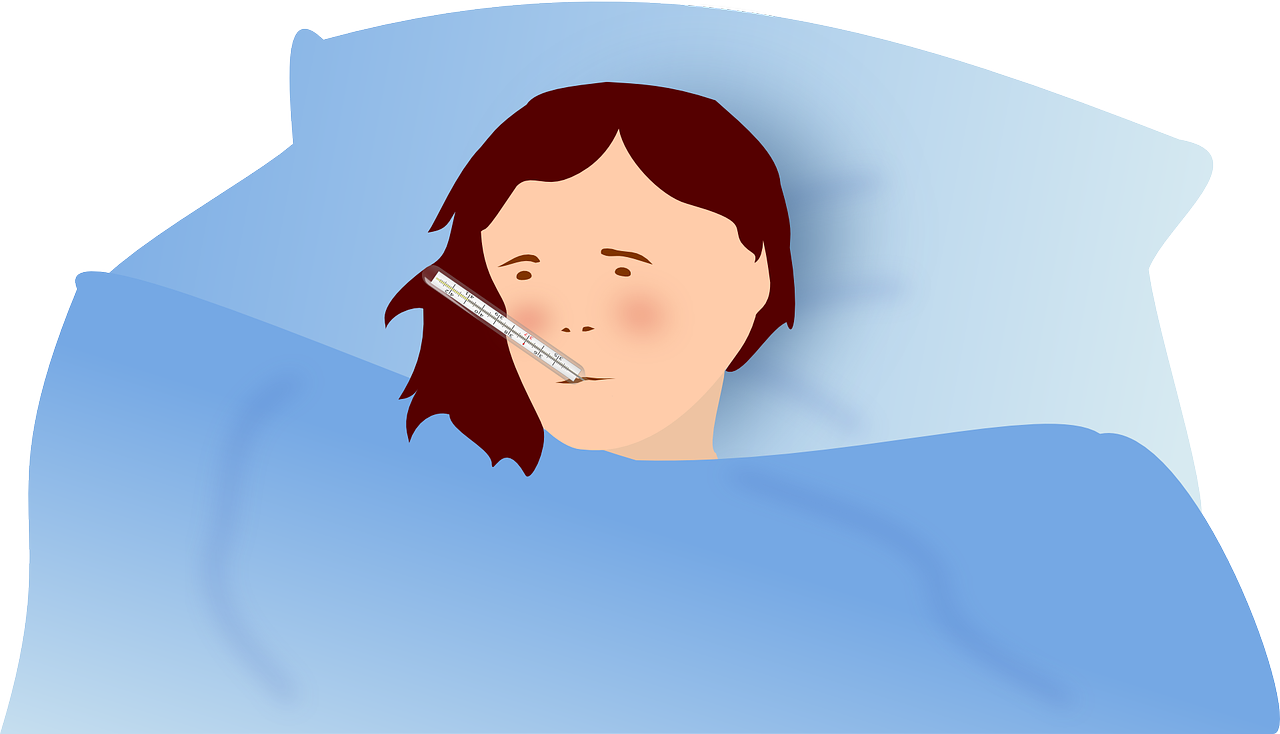Tis the season for the flu! I know, I know, either you love to talk about this topic, or, you have already rolled your eyes at the thought of what lies ahead. Most individuals, in healthcare or not, fall into distinct categories regarding Influenza; 1. Those who faithfully receive their flu vaccine every year;2. Those who decline the influenza vaccine and therefore then comply with their organization’s alternatives. Whichever category that you fall in, as a healthcare professional it is important to educate yourself so that you are providing correct and scientific information to both patients and the public. Keep your unconscious biases regarding the topic in check! To get a jump start, take our quick, informative influenza course on NursingCE.com , then continue on below for a deeper dive.
Those who choose to receive the 2019 influenza vaccine
Options this season include:
- Standard dose flu shots. Like all inactivated influenza vaccines, these are given into the muscle. They are usually given with a needle, but one (Afluria Quadrivalent) can be given to some people (those 18 to 64 years old) with a jet injector.
- High-dose shots for people 65 years and older.
- Shots made with adjuvant for people 65 years and older.
- Shots made with virus grown in cell culture. No eggs are involved in the production of this vaccine.
- Shots made using a vaccine production technology (recombinant vaccine) that does not require the use of flu virus.
- Live attenuated influenza vaccine (LAIV). – A vaccine made with attenuated live virus that is given by nasal spray vaccine.
What viruses will the 2019-2020 flu vaccines protect against?
There are many different flu viruses and they are constantly changing. The composition of U.S. flu vaccines is reviewed annually and updated as needed to match circulating flu viruses. Flu vaccines protect against the three or four viruses (depending on the vaccine) that research suggests will be most common. For 2019-2020, trivalent (three-component) vaccines are recommended to contain:
- A/Brisbane/02/2018 (H1N1)pdm09-like virus (updated)
- A/Kansas/14/2017 (H3N2)-like virus (updated)
- B/Colorado/06/2017-like (Victoria lineage) virus
Quadrivalent (four-component) vaccines, which protect against a second lineage of B viruses, are recommended to contain:
- the three recommended viruses above, plus B/Phuket/3073/2013-like (Yamagata lineage) virus.
When should I get vaccinated?
Because the timing of the onset, peak and end of flu seasons varies from year to year and cannot be predicted, it is difficult to say when is the best time to be vaccinated for any one season. In trying to balance the need to get many people vaccinated before flu activity begins with concerns about potential waning of vaccine-induced immunity during the flu season, the CDC and ACIP recommend that vaccination be offered by the end of October.
Children 6 months through 8 years of age who need 2 doses should receive their first dose as soon as possible after the vaccine becomes available to allow the second dose (which must be administered at least 4 weeks later) to be received by the end of October.
Getting the flu vaccine too early, may lead to reduced protection for the entire flu season. Therefore, end of October remains the target date to receive your vaccine.
Can I get a flu vaccine if I am allergic to eggs?
The recommendations for people with egg allergies are unchanged and as follows:
- Persons who are able to eat lightly cooked egg (e.g., scrambled egg) without reaction are unlikely to be egg-allergic.
- Persons who have experienced only hives after exposure to egg should receive any licensed, recommended, age-appropriate flu vaccine.
- Persons reporting symptoms other than hives after exposure to egg (such as angioedema, respiratory distress, lightheadedness, or recurrent emesis; or who required epinephrine or another emergency medical intervention) may also receive any licensed and recommended flu vaccine that is otherwise appropriate.
- A previous severe allergic reaction to flu vaccine, regardless of the component suspected of causing the reaction, is a contraindication to future receipt of the vaccine.
Flu Activity
What sort of flu season is expected this year?
Influenza is unpredictable. While flu spreads every year, the timing, severity, and length of the season varies from one season to another. Flu viruses are constantly changing so it’s not unusual for new flu viruses to appear each year. The United States experiences annual epidemics of seasonal flu which is called “flu season.” In the United States, flu viruses are most common during the fall and winter months. Flu activity often begins to increase in October and November. Most of the time flu activity peaks between December and February, and it can last as late as May. Recent studies by CDC researchers and other researchers suggest that flu vaccination usually reduces the risk of influenza illness by 40% to 60% among the overall population when the vaccine viruses are like the ones spreading in the community.
Protective Actions
The CDC recommends a yearly flu vaccine for everyone 6 months of age and older as the first and most important step in protecting against this potentially serious disease. In addition to getting a seasonal flu vaccine, you can take everyday preventive actions like staying away from sick people and washing your hands to reduce the spread of germs. If you are sick with flu, stay home from work or school to prevent spreading flu to others. In addition, there are prescription antiviral drugs that can be used to treat flu illness symptoms.
What should I do to protect my loved ones from flu this season?
Encourage your loved ones to get vaccinated regardless of your opinion on getting the flu vaccine for yourself. Vaccination is especially important for people at high risk of developing flu complications, and their close contacts. Also, if you have a loved one who is at high risk of developing flu complications and they get flu symptoms, encourage them to seek medical attention for possible treatment with a flu antiviral drug. These drugs work best if given within 48 hours of when symptoms start.
What can I do to protect children who are too young to get vaccinated?
Children younger than 6 months old are at high risk of serious flu complications but are too young to get a flu vaccine. Because of this, safeguarding them from flu is especially important. If you live with or care for an infant younger than 6 months old, you should get a flu vaccine to help protect them from flu. Everyone else who is around the baby also should be vaccinated. Also, studies have shown that flu vaccination of the mother during pregnancy can protect the baby after birth from flu infection for several months.
Can I get vaccinated and still get flu?
Yes. It’s possible to get sick with flu even if you have been vaccinated (although you won’t know for sure unless you get a flu test). This is possible for the following reasons:
- You may be exposed to a flu virus shortly before getting vaccinated or during the period that it takes the body to gain protection after getting vaccinated. This exposure may result in you becoming ill with flu before the vaccine begins to protect you. (Antibodies that provide protection develop in the body about 2 weeks after vaccination.)
- You may be exposed to a flu virus that is not included in the seasonal flu vaccine. There are many different flu viruses that circulate every year. A flu vaccine is made to protect against the three or four flu viruses that research suggests will be most common.
- Even if you do get the flu after being vaccinated, some studies have shown that a flu vaccine can reduce the severity of your illness.

If You Get Sick
What happens in the body when someone has flu?
Flu viruses usually infect the respiratory tract (i.e., the airways of the nose, throat and lungs). As the infection progresses, the body’s immune system responds to fight the virus. This results in inflammation that can trigger respiratory symptoms such as cough and sore throat. The immune system response also can trigger fever and cause muscle or body aches. When infected people cough, sneeze, or talk, they can spread flu viruses in respiratory droplets to people who are nearby. People might also get flu by touching a contaminated surface or object that has flu virus on it and then touching their own mouth or nose.
Most people who become sick will recover in a few days to less than two weeks, but some people may become more severely ill. It often depends on how well patients take care of themselves when they become ill. Most normally healthy patients push through their symptoms which does not help in the natural immune system being able to do its job.
Following flu infection, moderate complications such as secondary ear and sinus infections can occur. Pneumonia is a serious flu complication that can result from either flu virus infection alone or from co-infection of flu virus and bacteria. Other possible serious complications triggered by flu can include inflammation of the heart (myocarditis), brain (encephalitis) or muscle (myositis, rhabdomyolysis) tissues, and multi-organ failure. Severe complications can happen to anyone, but may be more likely to happen to people who have certain chronic medical conditions, or in elderly persons.
Antiviral Medications
Antiviral drugs are prescription drugs that can be used to treat flu illness. People at high risk of serious flu complications recommended for prompt antiviral treatment include children younger than 2 years of age , adults 65 years of age and older, pregnant women, people with certain long-term medical conditions, and residents of nursing homes and other long-term care facilities.
Antiviral treatment as early as possible is also recommended for people who are very sick with flu (such as those with complicated, progressive illness or people hospitalized because of flu). Other people can be treated with antivirals at their health care professional’s discretion. Treating high risk people or people who are very sick with flu with antiviral drugs is very important. Studies show that prompt treatment with antiviral drugs can prevent serious flu complications. Prompt treatment can mean the difference between having a milder illness versus very serious illness that could result in a hospital stay.
Treatment with antivirals works best when begun within 48 hours of getting sick. However, treatment can still be beneficial when given later in the course of illness. Antiviral drugs are effective across all age and risk groups. Studies show that antiviral drugs are under-prescribed for people who are at high risk of complications who get flu. Four FDA-approved antiviral medications are recommended for use during the 2019-2020 flu season: oseltamivir (available in generic versions and under the trade name Tamiflu®), zanamivir (Relenza®), peramivir (Rapivab®), and baloxavir marboxil (Xofluza®). Patients should be informed that these antiviral medications are not a cure, they merely work to decrease viral load in the body, therefore decreasing the inflammatory response and improving symptoms. Potential side effects should be discussed with their prescriber.
If you'd like some additional reading, we have a secondary blog post on how you are vital on the front lines of flu epidemic management, click here.



